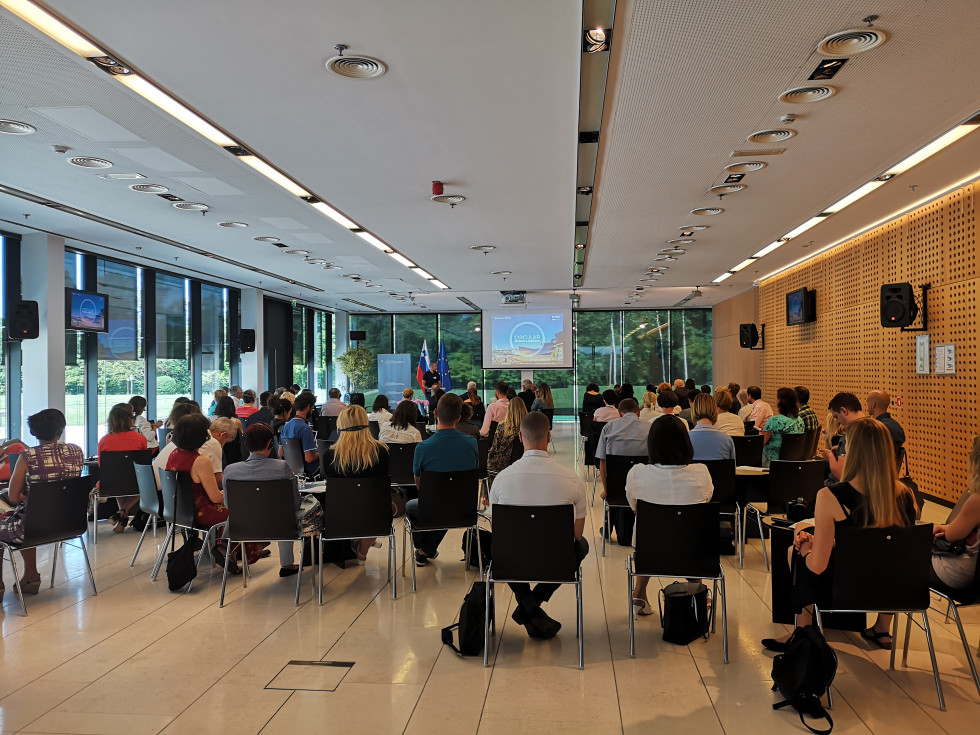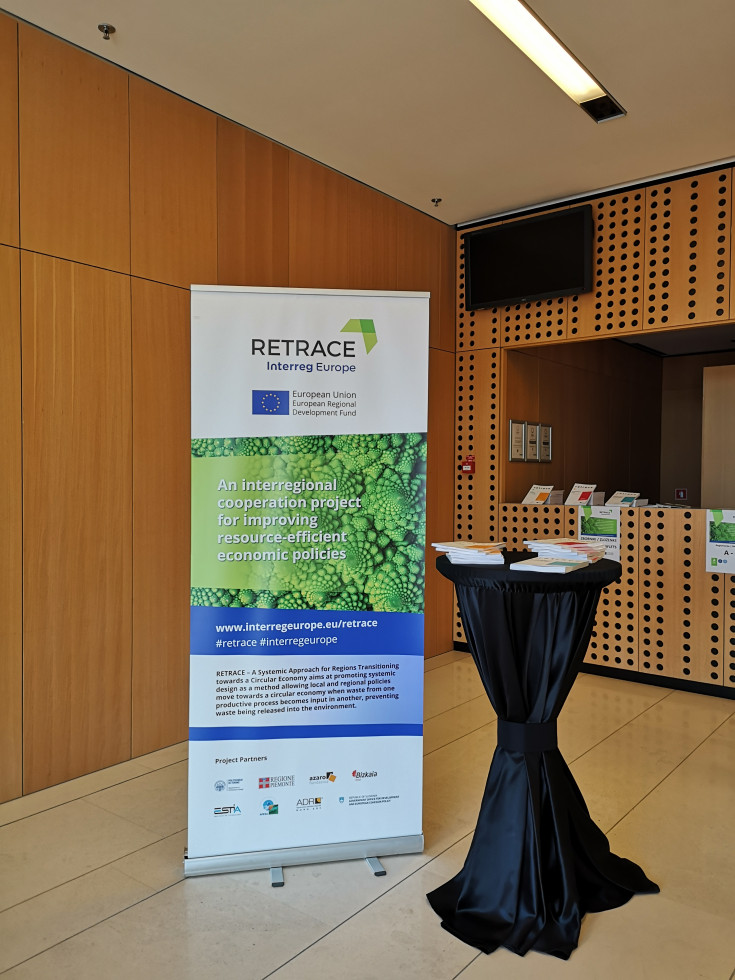Minister Purič at the conference Systemic Design for Circular Policy-making
- Government Office for Development and European Cohesion Policy
As Europe has committed to reduce greenhouse gas emissions to net zero by 2050, efforts will need to be stepped up to develop innovative systemic approaches that will help achieve this ambitious target. Minister Purič explained that Slovenian government was well aware of the need to rethink the paradigm and underlined that the country had already adopted a framework to design its long-term climate policy. ‘’Our national climate and energy programme is being designed as we speak, and low carbon economy has already been identified as one of the twelve flagship development goals in Slovenia’s Development Strategy 2030. Transition to a circular economy calls for a well-thought-out approach to policy-making; to this end, our government office has been actively participating in a number of European Territorial Cooperation projects which promote good practice sharing and peer learning,’’ underlined the Minister and added it was an honour for Slovenia to host the closing event of the Retrace project.
The event also featured high-level keynote speakers who welcomed the participants, including H.E. Paolo Trichilo, Ambassador of the Republic of Italy to Slovenia and Samo Hribar Milič, Executive Director of Chamber of Commerce and Industry of Slovenia who emphasised the role of Slovenian Smart Specialisation Strategy. Interreg Europe Programme Director Erwin Siweris said that the Retrace project was a real example of good practice and underlined the role of Interreg Europe programme as an important financial instrument helping the regions and cities to design, redesign and adjust their regional development policies.
Alternative approaches to policy-making in the areas of carbon neutrality and resource efficiency are being developed EU wide and at the level of individual Member States in so-called policy labs. Alessandro Rancati from the EU Policy Lab shed light on the basic idea behind the EU Policy Lab’s work and discussed their approach which focuses on better policy-making through building scenarios in a foresight exercise, anticipating behaviour patterns and fostering systemic thinking. Dr. Harry Lehmann from the German Environmental Agency gave insight into how Germany is going about adopting a resource efficient pathway to become a climate neutral economy.
Silva Barbero, representative of RETRACE Lead Partner Politecnico di Torino outlined the overall results of the RETRACE projects highlighting that the project fostered better circular economy policy-making at the national and regional level by bringing together partners to team up and share ideas, best practices and experience, in particular by improving the relevant strategic frameworks. A number of best practices from the business sector and at the policy level were showcased at the event, including the case of Slovenian Centre for Creativity which operates under the auspices of the Museum for Architecture and Design and whose initiative Creative&Circular was highlighted for encouraging and selecting best projects that followed and advocated the principles of circular economy.
Presentations:
Program Interreg Europe: State of Play, Erwin Siweris
Retrace project, dr. Silvia Barbero (Politecnico di Torino)
Designing a resource efficient pathway - towards a greenhouse gas neutral Germany, dr. Harry Lehmann (Umweltbundesamt Deutschland)
CIrCular Economy platfoRm for eurOpeaN priorities strategic agEnda - CICERONE project, dr. Rebeka Lukman Kovačič (Univerza v Mariboru)
Sistemic design for Circular policy - Piedmont Bioeconomy Platform, Tiziana Dell'Olmo
Ikos project, Marion Besse
Circular and Creative, Mika Cimolini (Center za kreativnost)
Circular Bilbao Bizkaia, Ander Muñoz (Beaz Bizkaia)
Improving funding schemes for fostering Circular Economy in Romania, Gabriela Bobean (Nord-East RDA)



